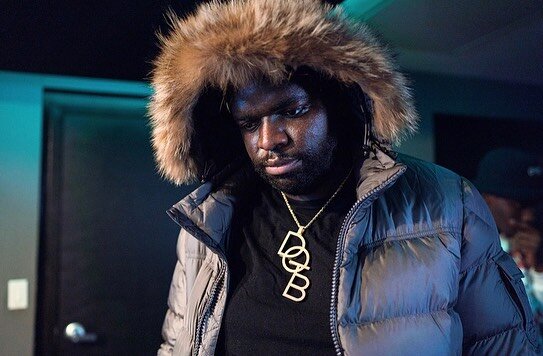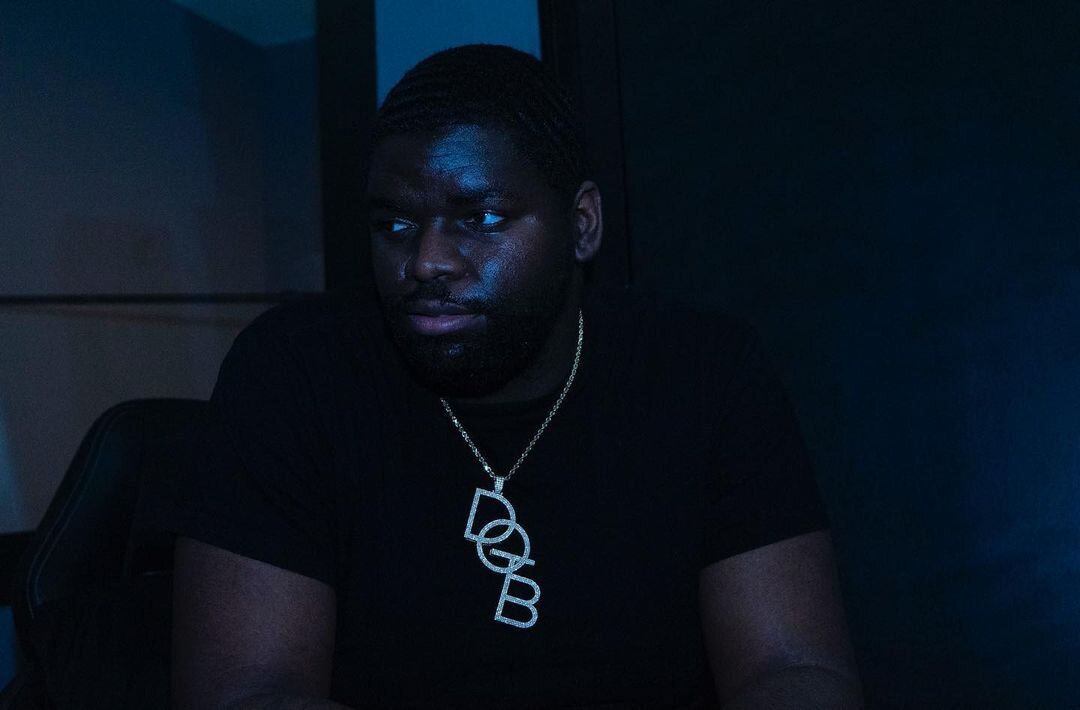
Rap music is no longer a genre that can be wholly described under one umbrella term. For the most part, artists exist within a binary, and their music is characterized by either 1) more traditional or abstract beats that sit at around 90 to 100 BPM paired with classic, bars-heavy rapping, or 2) new-school production that revolves around trap percussion and 130 to 140 BPM tempos, with a vocalist that prefers clever one-liners and melody above all. There are a few rappers, however, that live in the middle of hip-hop’s proverbial Venn Diagram, mixing the storytelling and lyricism of the old with the vicious energy of the new. It’s no coincidence that the most notable names in that middle ground- Meek Mill, G Herbo, Dave East- all have collaborated with Philadelphia beatmaker Dougie On The Beat on multiple occasions.
Dougie has become a go-to producer for those looking to blend rap’s dominant subgenres because of his prowess when it comes to balancing them. Take the beat he made for Herbo’s “No Jail Time”, for example. It’s an effortless combination of the same synth from Atlantic Starr’s 1982 classic “Let’s Get Closer” that was used on Warren G & Nate Dogg’s “Nobody Does It Better”, and the way the drums interact with the sample gives the song a Blueprint feel. At the same time, the track’s core elements are accented by thunderous 808s and lightning-fast hi-hats. Speaking over the phone with Sidedoor, Dougie attributes his ability to find the ideal mid-point between modern and classic to two things: his influences and his own taste in music. Asked about the producers he patterned himself after in his earlier years, Dougie lists legends from all eras: Kanye West, Just Blaze, The Beat Bully, Metro Boomin, Southside. He also explains that the majority of what he listens to isn’t even hip-hop. “The music that I sample is just the music that I listen to”, he says. “I don’t listen to rap music that much. I really like R&B and the oldies. Luther Vandross, Atlantic Starr, Johnny Gill, stuff like that.” The music that he samples comes straight from what he enjoys listening to, such as the aformentioned “Let’s Get Closer”. Dougie says that he created his style out of the desire to cover as many bases as possible, in order to work with anyone he’s inspired by. “I like being versatile”, he says. “It gives me versatility. I can give you something you can spit bars on, or give you something to turn up to… everybody can’t catch one type of sound. You gotta have every type of vibe.”
Of all the influences that Dougie lists, however, there’s one that stood above all. “I really crafted my sound from [Boi-1da]. Specifically, the beat he made for “Best I Ever Had” by Drake. If you go back and listen to it, you’ll be able to hear it.” The connection is obvious. Boi-1da is an incredibly versatile producer who’s also been successful finding a happy medium between rap’s different realms, and Dougie’s been inspired by his work both directly and indirectly. “The sounds for [Meek Mill’s] ‘1942 Flows’, they’re straight out of Boi1-da’s kit”, he says, a fact that will probably surprise people until they go back and listen to the two songs again to notice the similarity. Dougie’s Toronto ties extend even further than just an admiration for 1da’s work, too; he says that he’s been working with Riicch, who Sidedoor recently profiled. On top of that, when asked who he’d like to lock in with in the future, Dougie named Toronto’s current music monarch: “I think [Drake] would go crazy on my beats. I’d love to work with him.” And while it may seem like a bit of a cliché answer at first, it’s impossible to deny that Dougie’s production wouldn’t be the perfect backdrop for one of Drake’s patented time-and-place records.

While the artists that Dougie’s worked with come from all across North America, he’s still got a special bond with Philadelphia, the place he was born and raised in. “Philly is home to rappers. People who can really spit. And it drew me to making beats that allow people to pour their pain out, and tell a story.” The culture of the city is clearly something that bleeds out of Dougie’s work, and it’s why he’s constantly struck creative gold with those who also came up in the City of Brotherly Love, including Kur, Quilly, Omelly, and of course, Meek Mill. While their contact was initially done online, Meek’s interest reached the point where he started inviting Dougie to the studio, eventually signing him to the Dreamchasers team. When Meek’s brought up in the conversation, Dougie recalls the inspiration that he provided simply by going about his usual routine. “Working with Meek gave me a completely different outlook on how you have to be as a musician. Meek works like he’s never accomplished anything, even though he’s done so much. He gets to the studio, on time, and he’s there all night, every single day. No breaks. Seeing that, it showed me I have to take it to another level myself. Seeing the effort he puts in daily, it opened my eyes to what you have to do, to get where you want to go.”
As his success continues to grow and his name becomes more and more established, Dougie wants to give back by helping aspiring producers. Asked about any advice he has for those looking to make it in the cutthroat world of rap production, he advises a slow ascent over aiming for the moon from the start. “Build with people on your level, and stay consistent with them.” Words of wisdom aren’t the only help he wants to provide, though. Dougie originally learned how to make beats through a community initiative founded by his uncle called Music Development for the Youth. With the end of the global pandemic (hopefully) on the horizon, Dougie wants to create a similar environment for young creatives. “I’m in the process of doing something similar to the program I grew up in. I’ve been talking to my uncle about it, because I want to give someone the same opportunity that I was given, one that might change their lives the way it changed, and saved, mine.” The idea is a glimpse at the humility Dougie possesses, recognizing that music isn’t just a get-rich-quick scheme, but an art form that holds the power to steer the youth in the right direction if they’re shown how to do it properly. It’s also safe to say that if his programs create a whole generation of producers as good as him, hip-hop is in good hands

